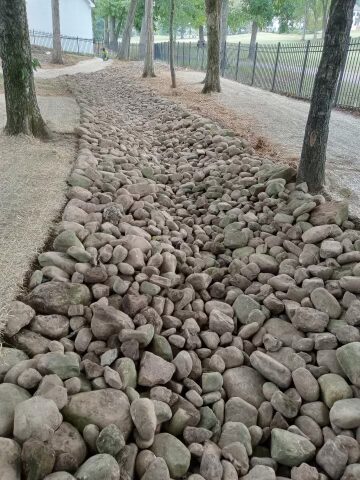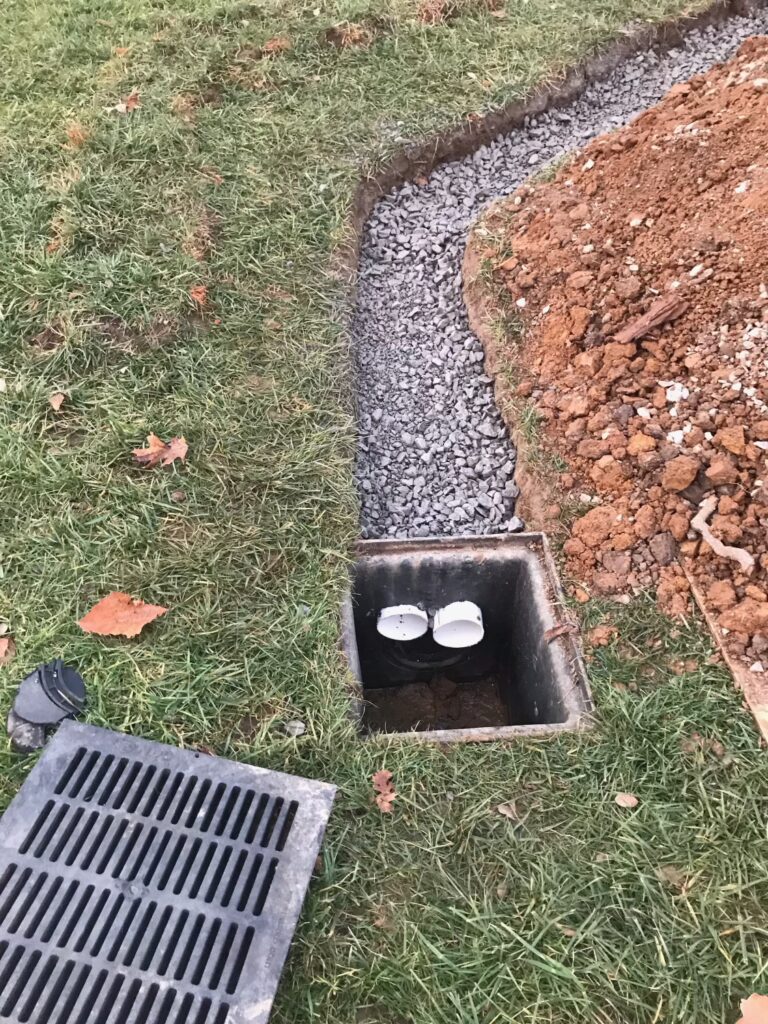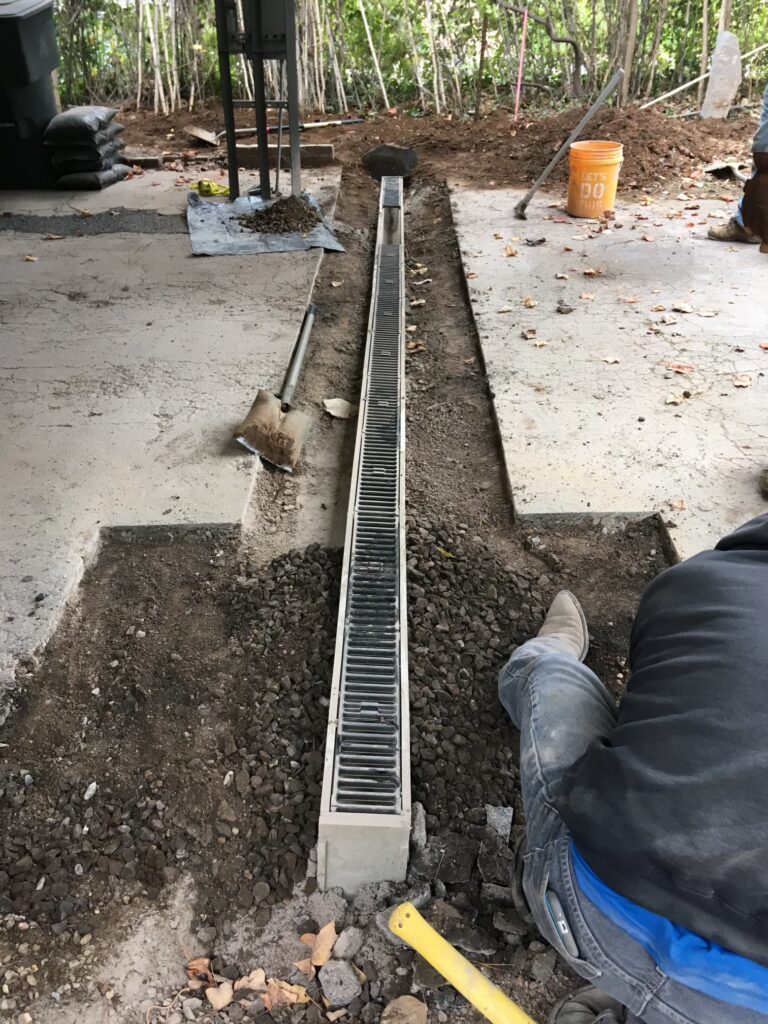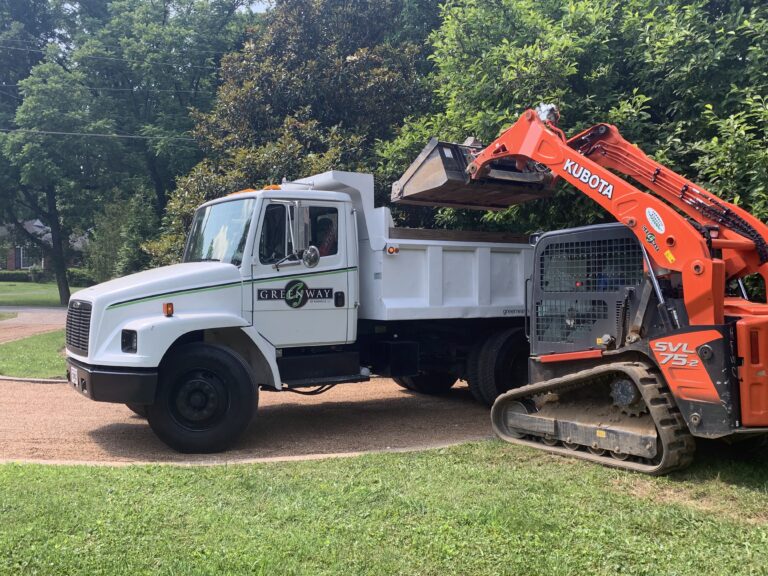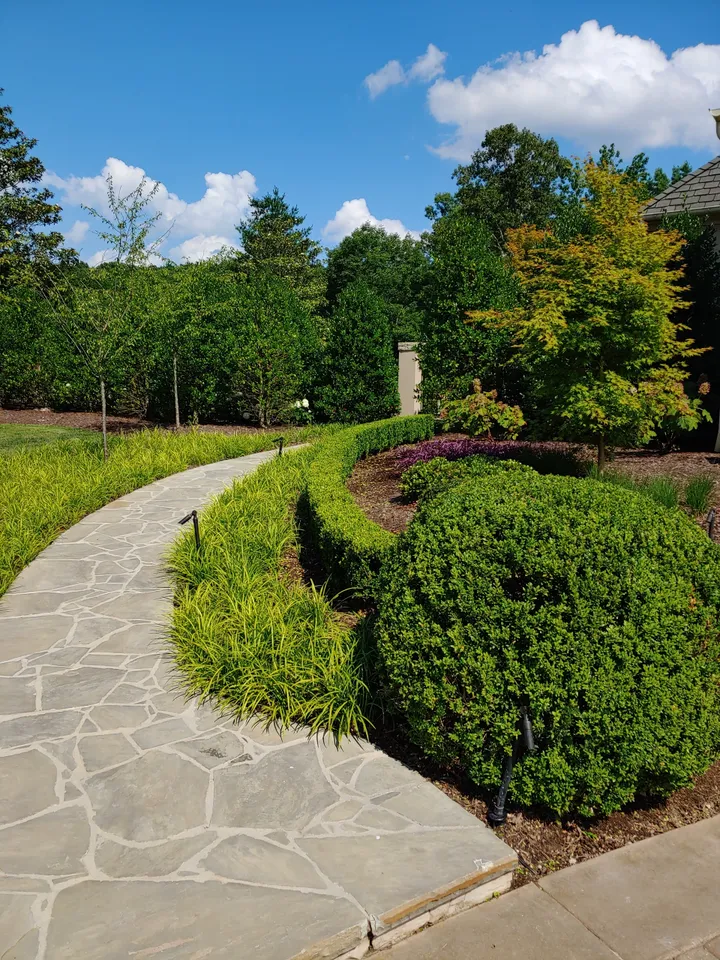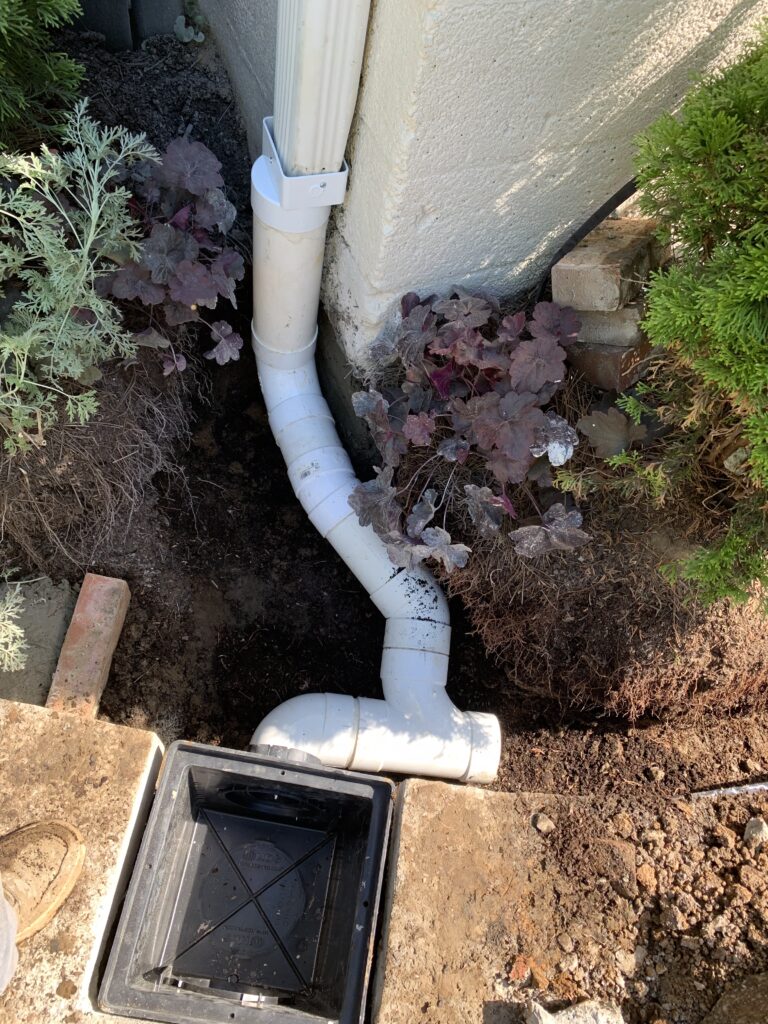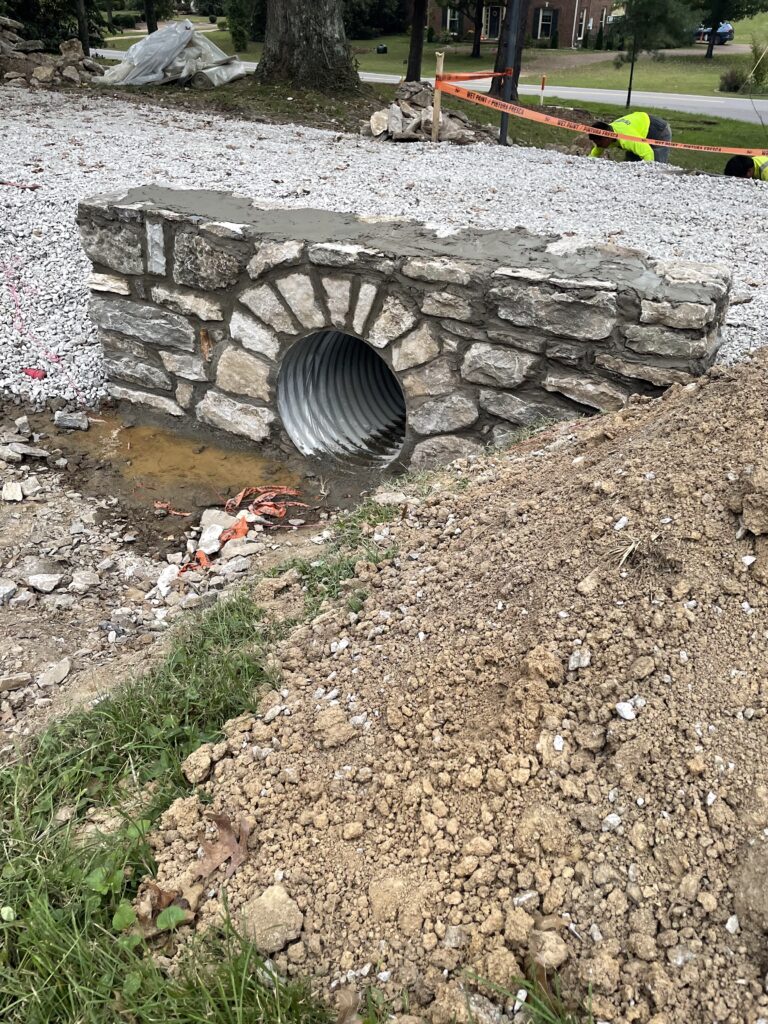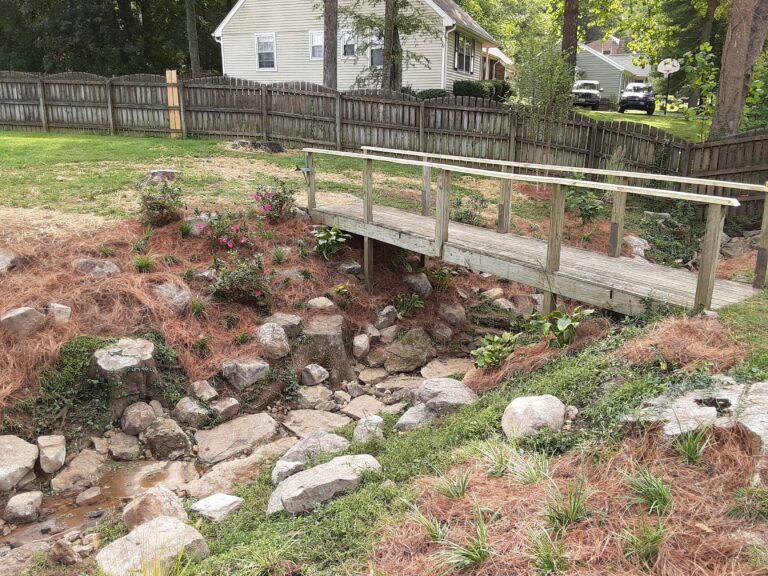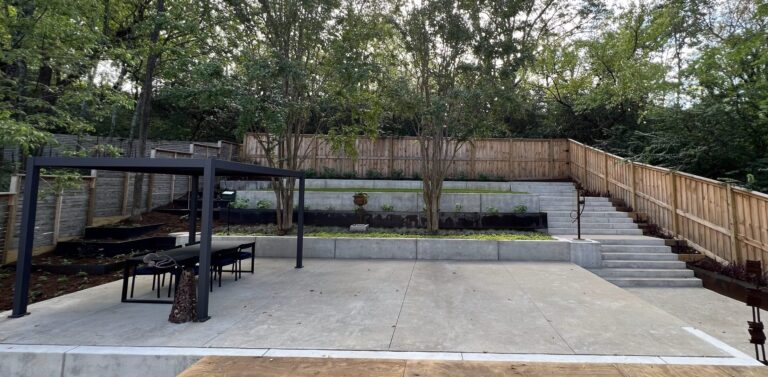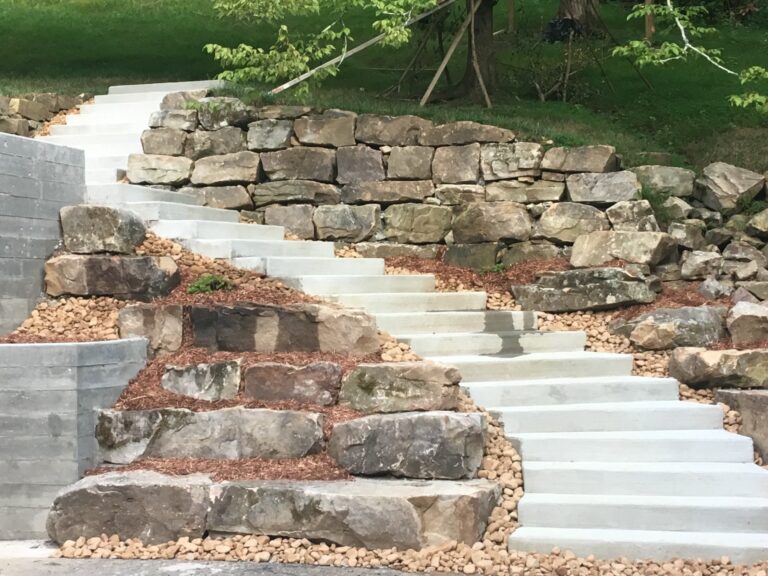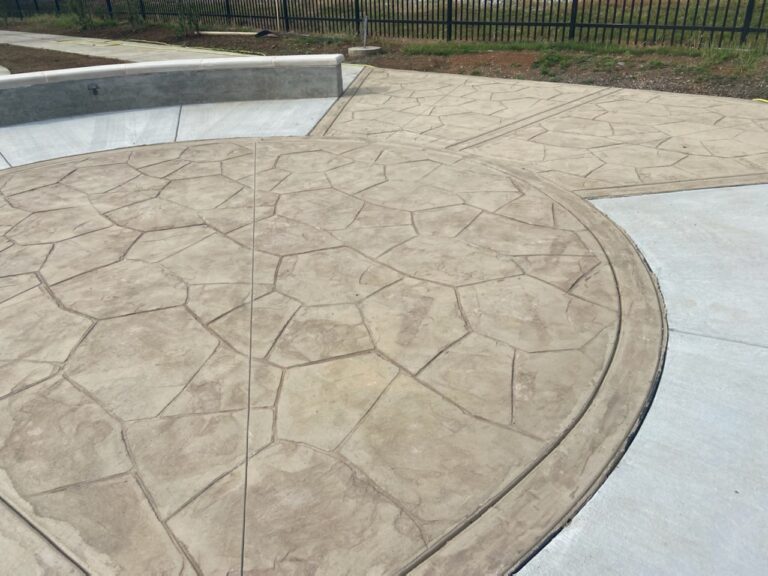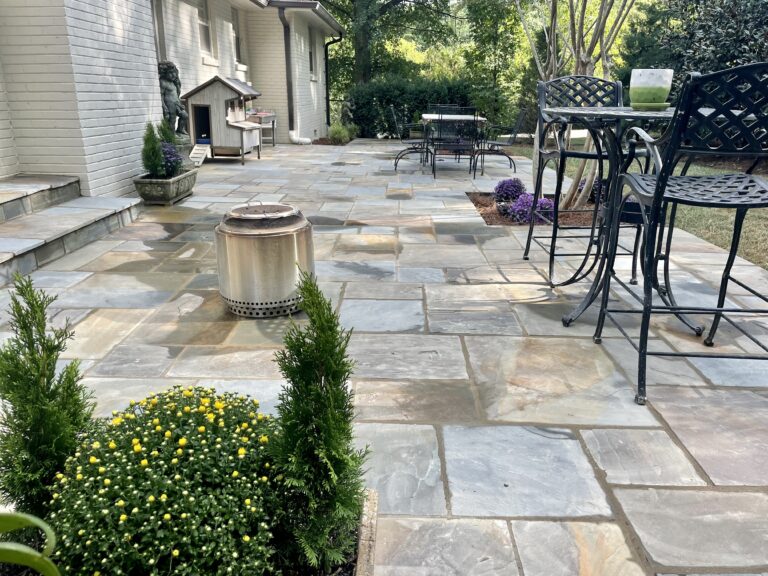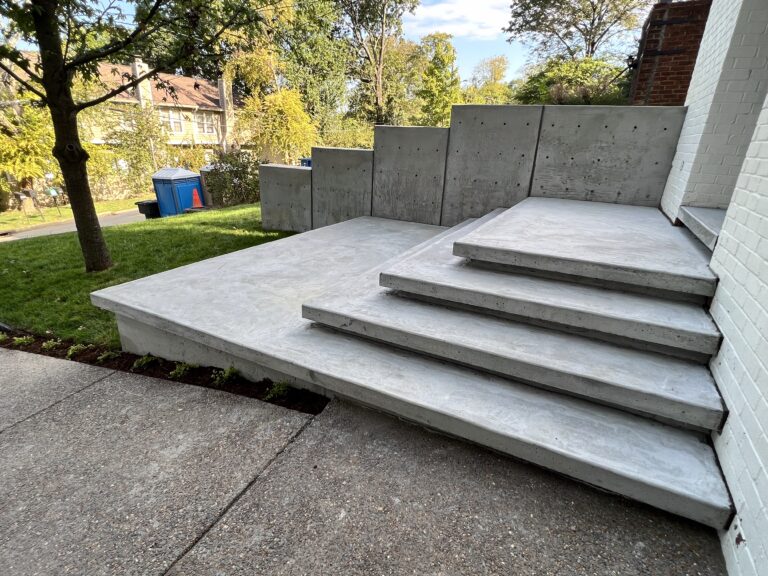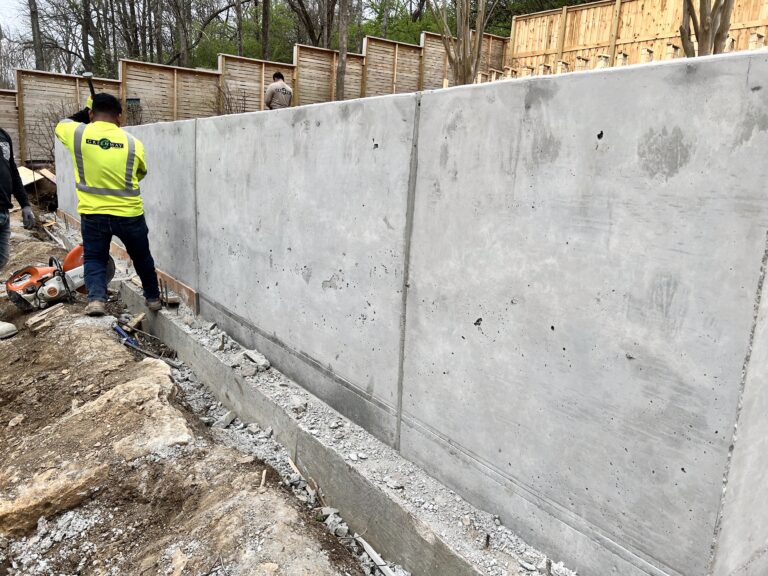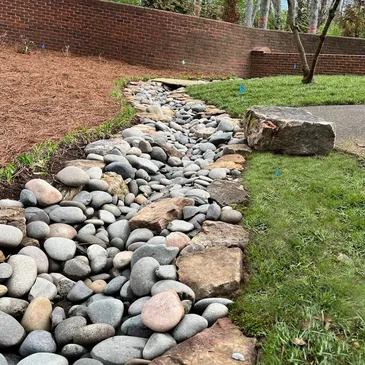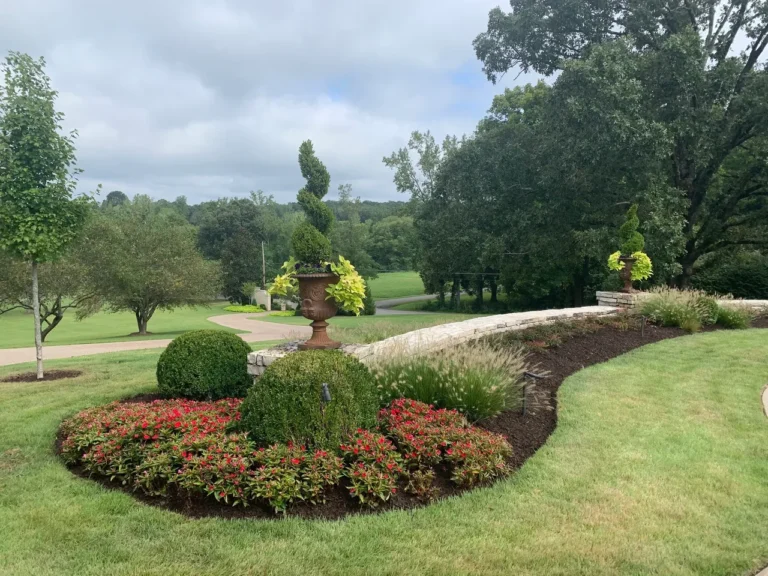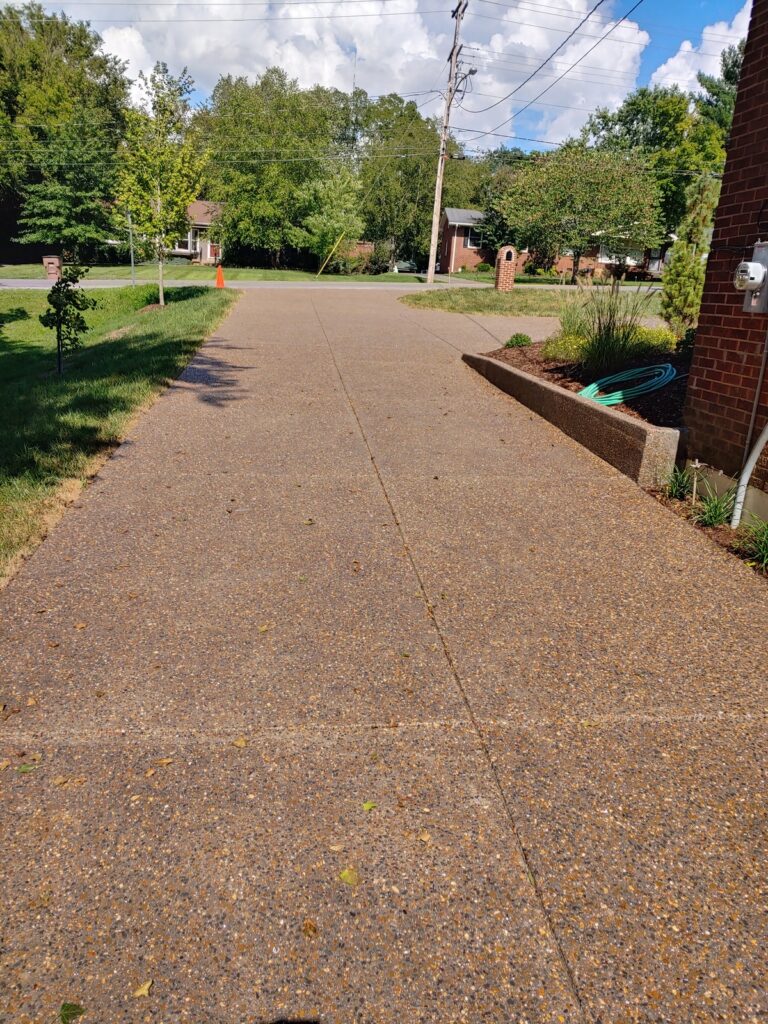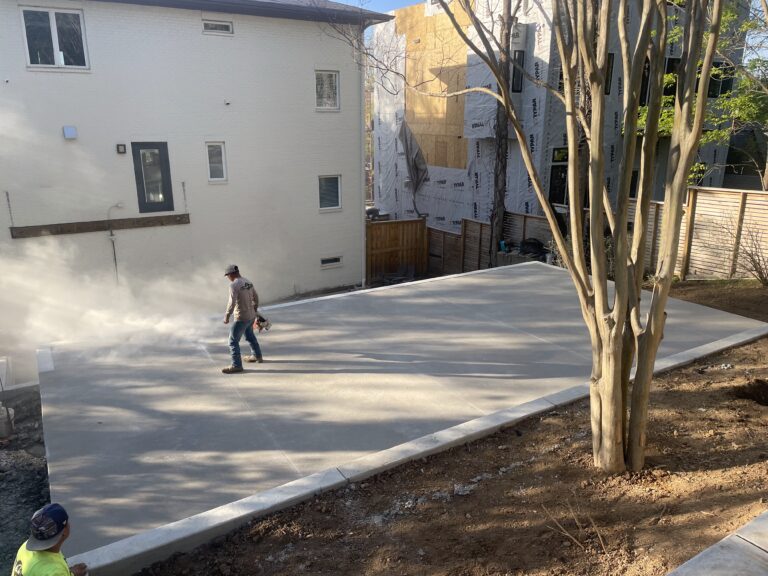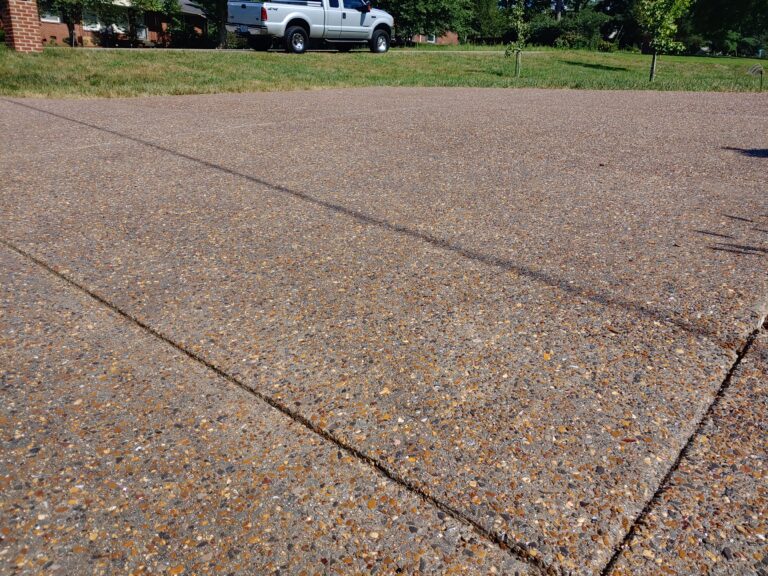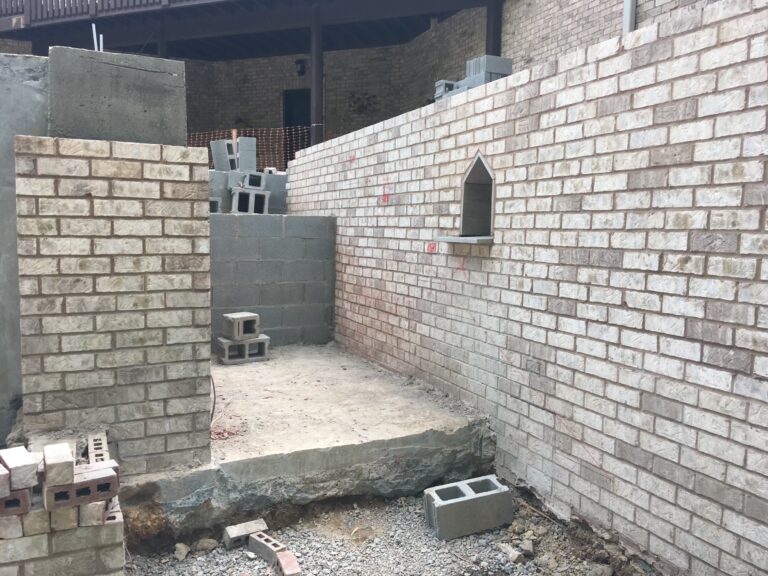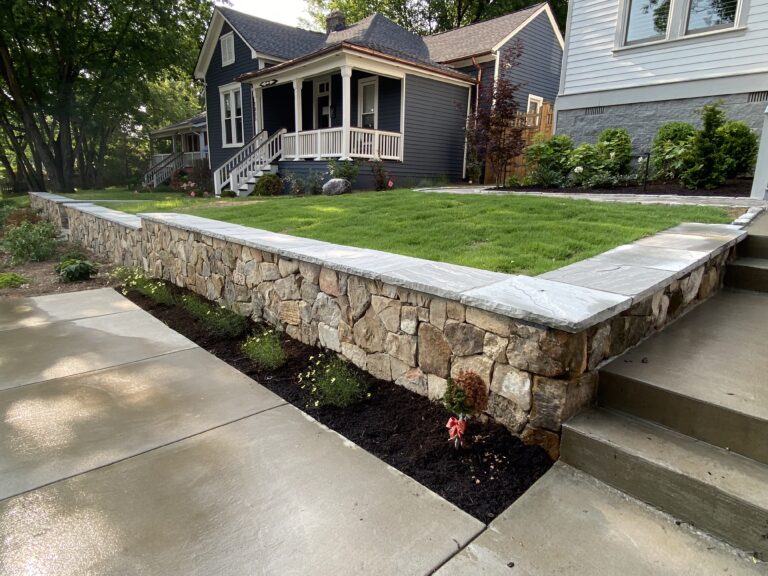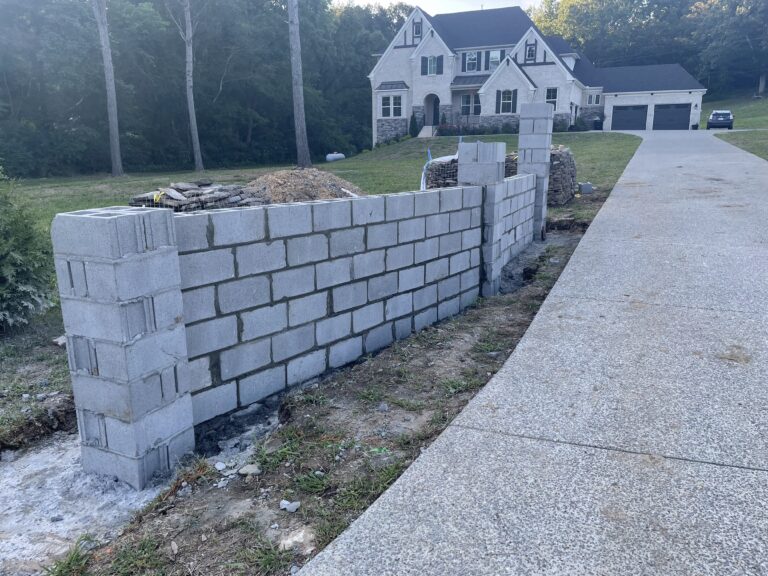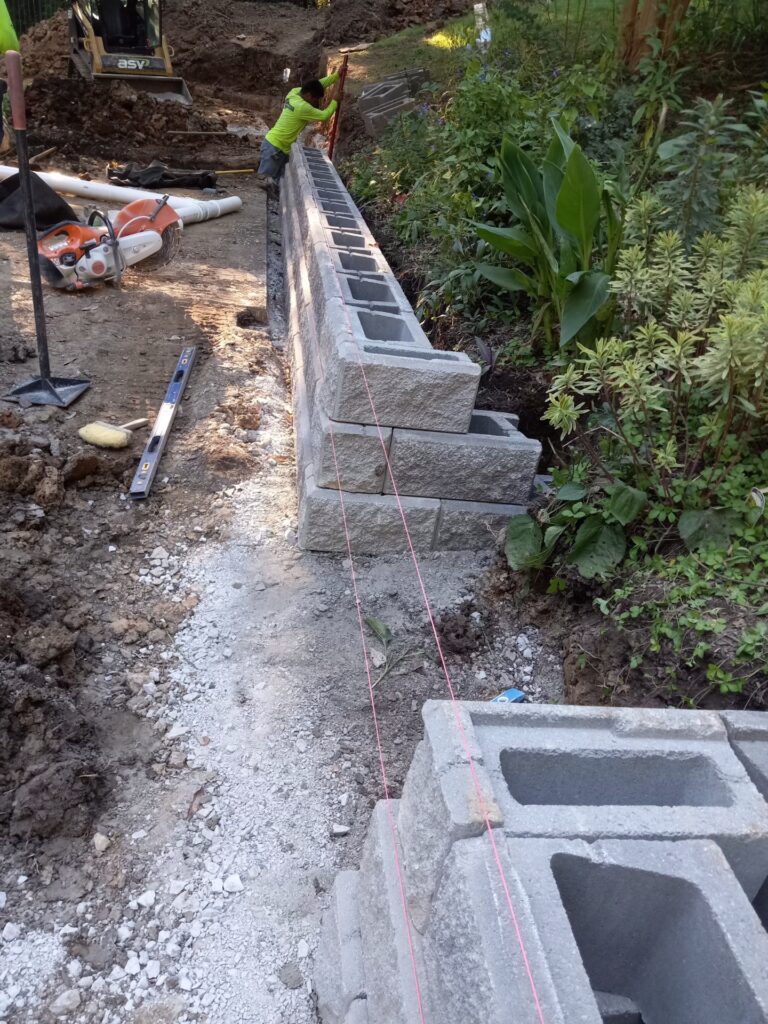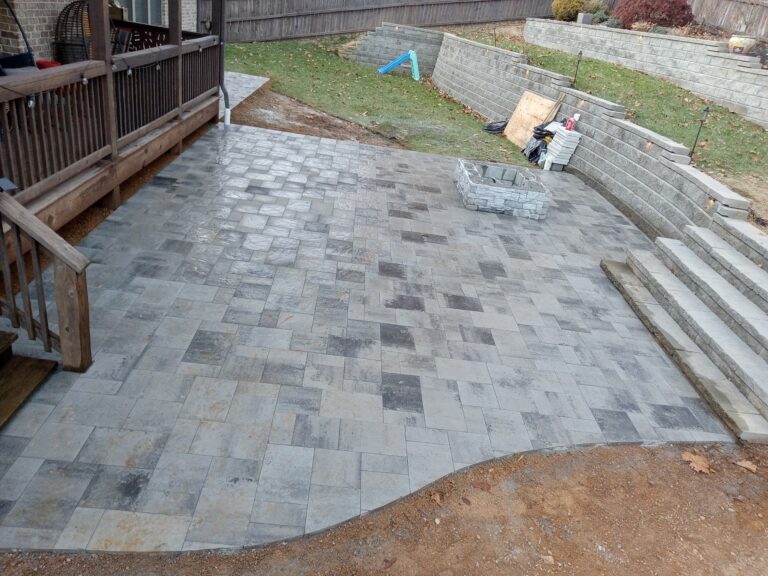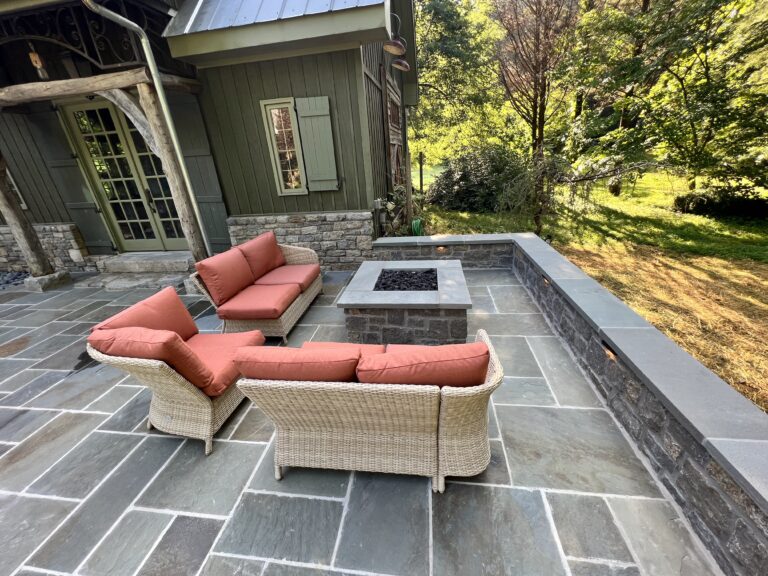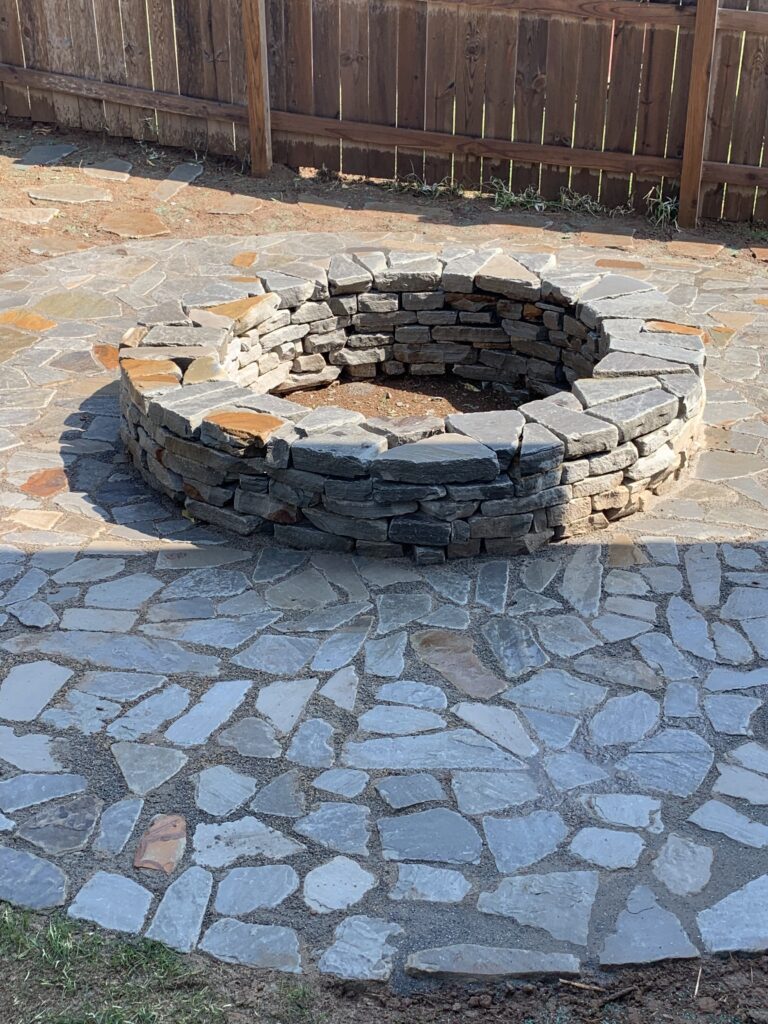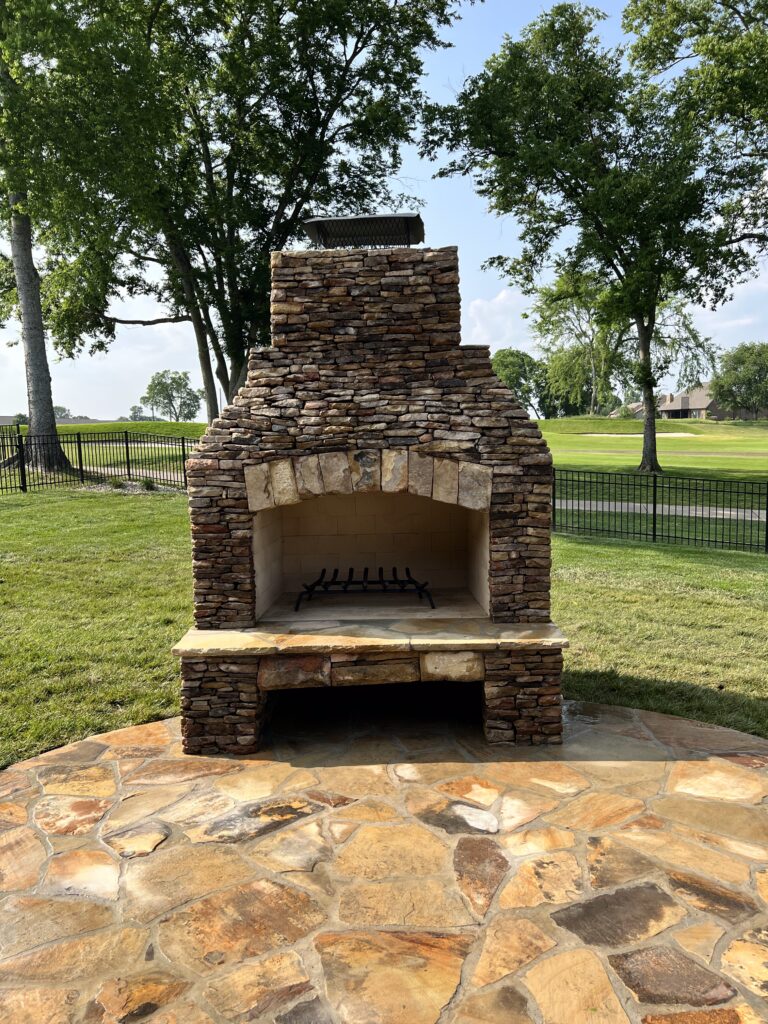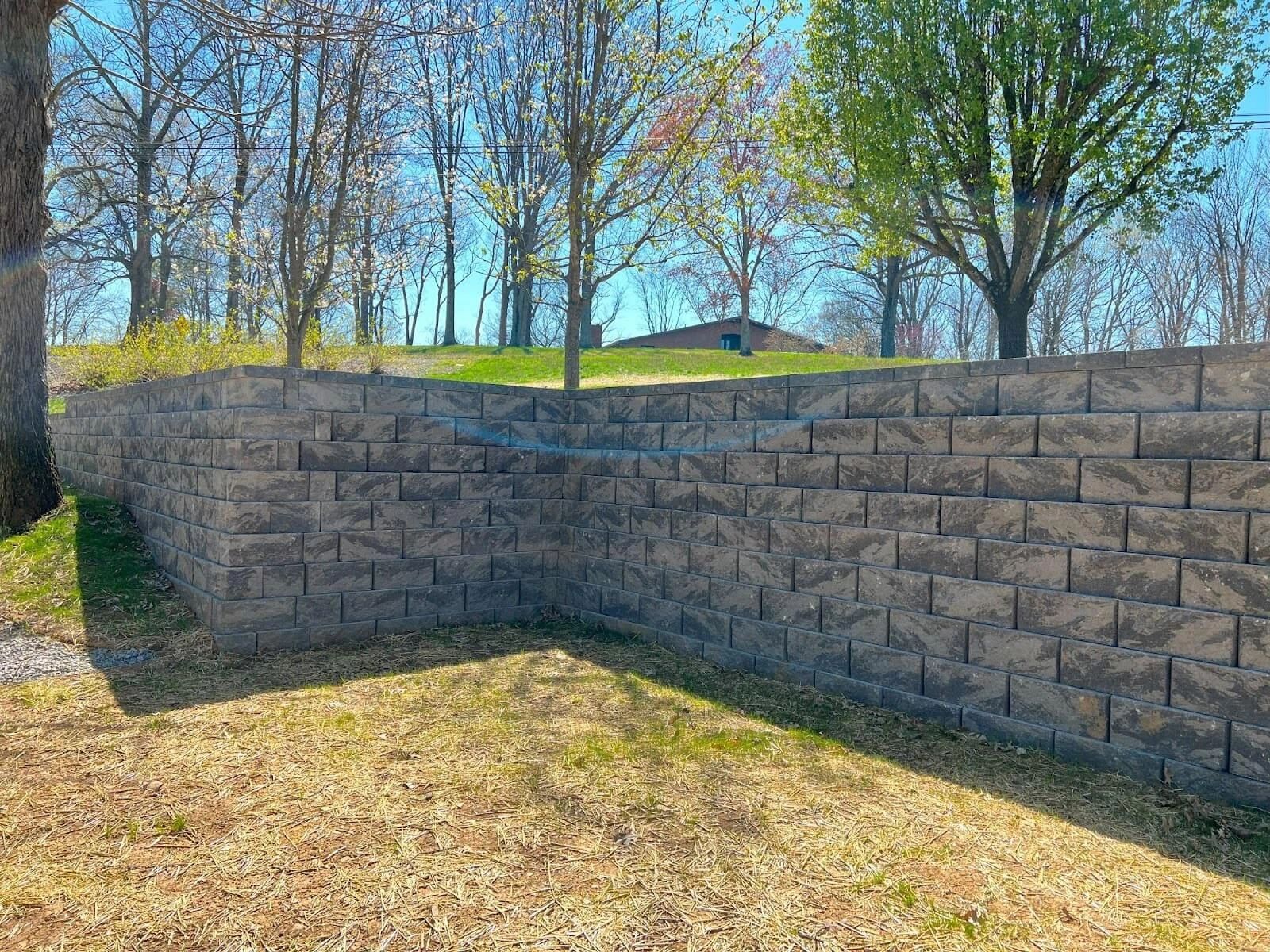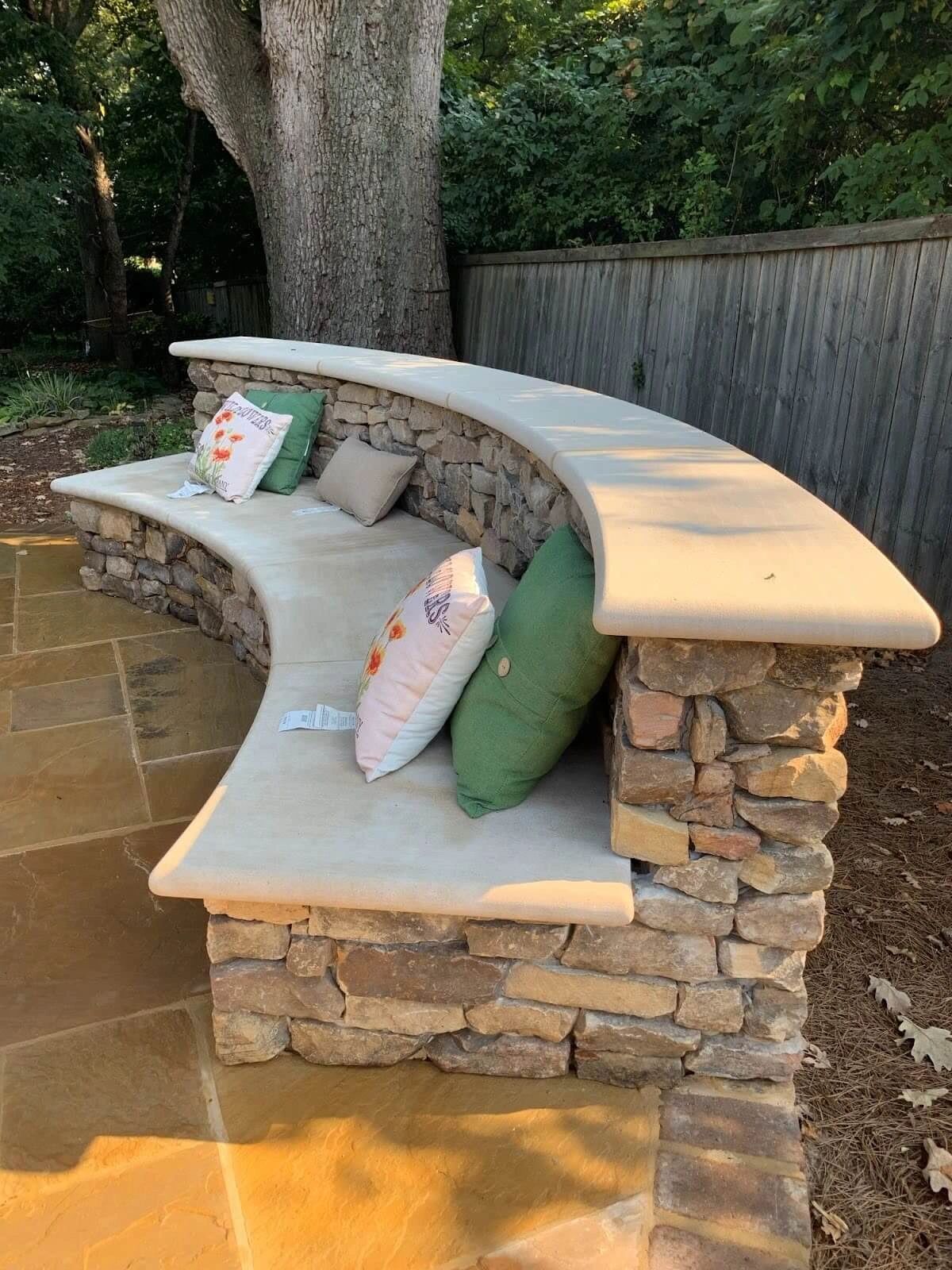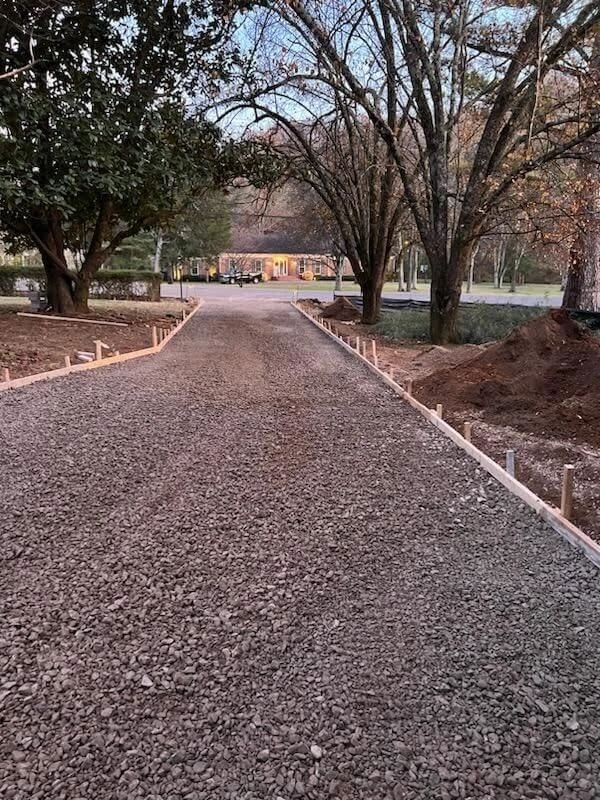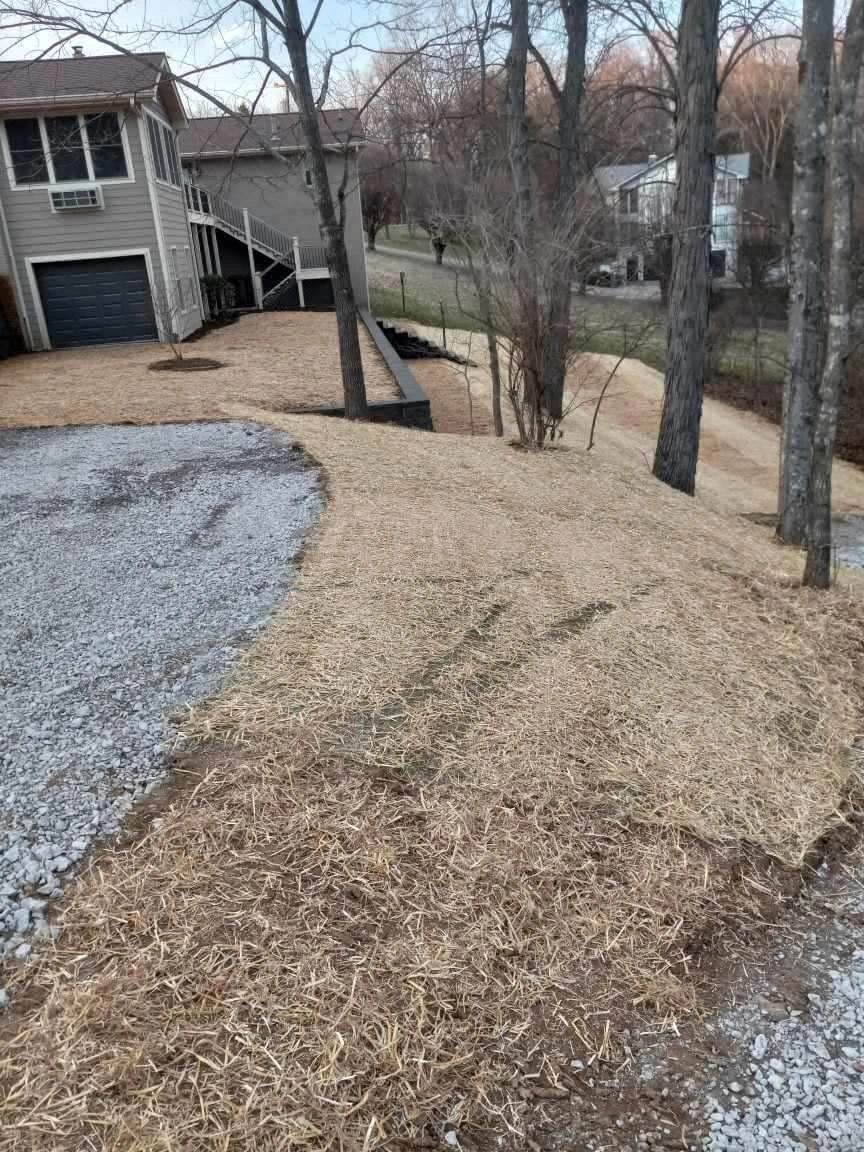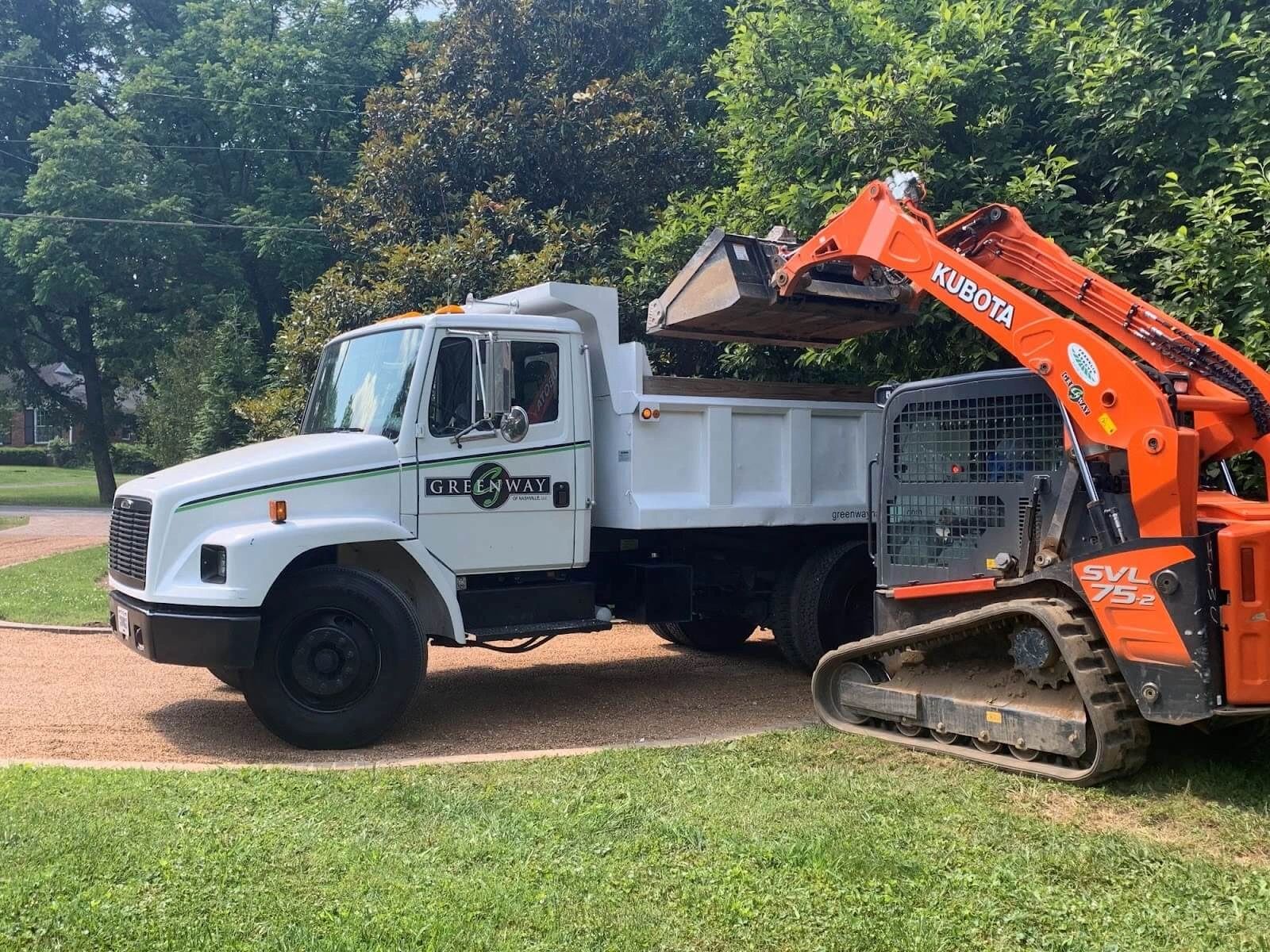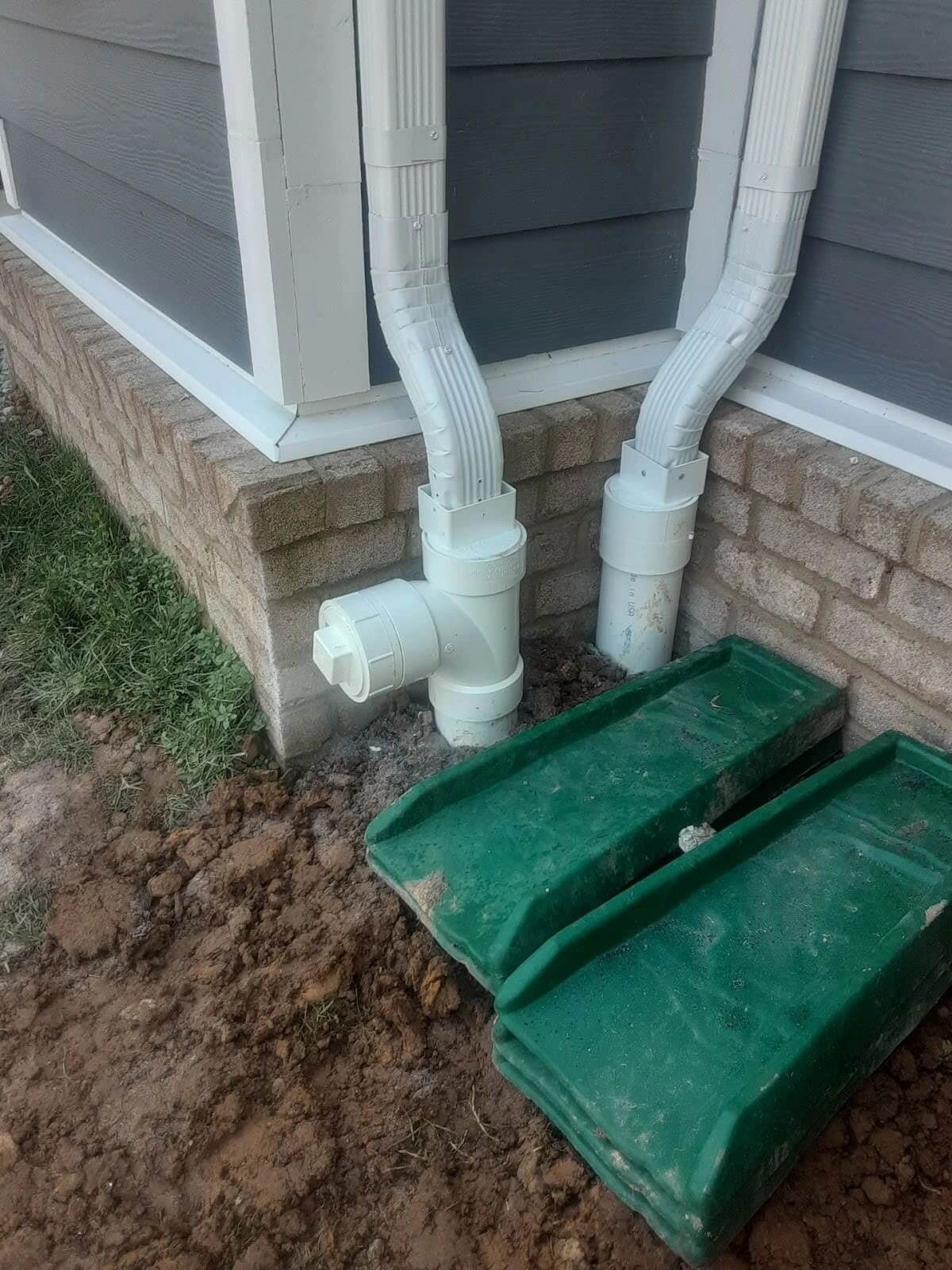If you’re a homeowner, retaining walls are an essential tool for managing sloped landscapes, preventing erosion, and creating functional outdoor spaces. Nashville’s varied topography and heavy rains can wreak havoc on your property if a well-built retaining wall and other landscape drainage structures aren’t in place. Long-term protection of your home means these critical additions to your property should be a priority, but they also need to be constructed carefully. Understanding how much material is needed to construct a retaining wall can help you budget effectively and avoid common pitfalls. We’ll help you learn what retaining walls are, why they matter, how to calculate material requirements, and why working with professionals gives the best results.
What Is a Retaining Wall?
A retaining wall is a structure designed to resist the pressure of soil, keeping it in place instead of rolling downhill or shifting. These walls hold back earth, create level areas on sloped properties, and manage water flow to prevent erosion. They come in various materials and designs, including gravity walls, anchored walls, and cantilever walls, each serving specific needs. In Nashville, retaining walls are particularly useful for managing the area’s seasonal rain. A well-built retaining wall can prevent water pooling, erosion, and property damage while adding aesthetic value to your landscape.
Why Are Retaining Walls Important?
Retaining walls provide both functional and aesthetic benefits:
- Erosion Control: Erosion is when soil washes away from its existing location. Retaining walls stabilize soil on sloped terrains, preventing erosion caused by rainfall.
- Increased Usable Space: Retaining walls create flat, usable areas for gardens, patios, or driveways. Instead of sloped ground, the wall allows you to create a level surface that is held secure.
- Enhanced Property Value: A thoughtfully designed wall adds curb appeal and structural integrity to your home. It can add visual beauty as well as increase usable space, which is a value add in the real estate market.
- Improved Drainage: Retaining walls with integrated landscaping drainage systems divert water away from vulnerable areas, reducing flood risk. This keeps your yard usable and prevents costly issues down the road.
Materials for Retaining Walls
Choosing the right material depends on your wall’s purpose, aesthetic preferences, and budget. Common materials include concrete blocks, stone, brick, and wood. Each has different pros and cons.
- Concrete Blocks: Durable, cost-effective, and versatile. These can be stamped or stained but have a less natural appearance than stone.
- Natural Stone: A timeless, rustic (but heavy) option that blends with natural surroundings. The irregular shapes mean careful planning is necessary for structural stability.
- Brick: This material offers a classic look for formal landscapes. Brick requires mortar, which needs thoughtful application and adds increased time to the installation process.
- Wood: While economical, wood is less durable and is only suitable for smaller walls. These are most common for raised beds in a garden or more decorative spaces.
Calculating Materials for Retaining Wall Installation
Each material requires specific calculations to ensure the correct amount is ordered. Accurate calculations are critical for ensuring you have enough materials without overspending. You’ll first need to determine the wall dimensions. Height is the measure from the base to the top. Length is the entire distance the wall will cover on your property. Consider the wall’s width or thickness, which depends on its height and the material used.
From there, you’ll have to take your chosen material’s size and perform the calculations that yield the amount of structural material to build a wall of that size. Don’t forget to account for all the additional supplies that may be applicable, like mortar or anchoring. You’ll also have to account for backfill. Backfill material, such as gravel, is crucial for drainage and stability. Plan for an amount equal to the wall’s volume. You should always add a buffer to the amount of material you plan to use. Be sure to order extra material (anywhere from 5-10%) to account for any errors or mishaps. If you haven’t built a retaining wall before or don’t do it often, it’s better to err on the side of caution.
Potential Challenges of DIY Calculations
While it’s possible to calculate materials yourself, mistakes can be costly. Underestimating materials leads to project delays and additional trips to the supplier. If the stone or brick you choose becomes unavailable or out of stock, you’ll face frustration and delays. The opposite problem is overestimating materials, which unnecessarily inflates costs. Materials might not be returnable, or if they’re heavy, it might be physically difficult to get them back to the store. Calculating your needs for drainage planning is not black and white either. Inadequate backfill or drainage can cause the wall to fail prematurely. You may need supplemental installations like a French drain, which should be done as part of the retaining wall installation to maximize efficiency and reduce costs. Professional services like Greenway of Nashville eliminate these risks by providing accurate calculations and high-quality construction. Drainage contractors from our team customize the project to what your home needs.
How Greenway Ensures You Get the Right Amount of Material From the Start
You want your retaining wall project done right, which means having effective planning and calculations. When we do your free consultation, Greenway of Nashville’s team measures and assesses your space, ensuring precise material estimates. We consider factors like slope, soil type, and water flow to create a wall that’s both functional and attractive. As experts in the region, Greenway knows the right materials to recommend based on these findings and how to calculate so that you get a guaranteed price estimate.
You also benefit from our efficient construction! Greenway of Nashville’s retaining wall contractors near Nashville streamline the process, saving you time and reducing stress. We know where and how to get the material, have the equipment to do the heavy lifting, and ensure your wall meets local building regulations, avoiding potential fines or rebuilding costs.
We use only top-quality materials and techniques, meaning your retaining wall is designed to last decades. You gain a long-term investment that protects your home, serves as a focal point of the landscape, and increases the value of the property.
Tips for Planning Your Retaining Wall Project
No matter the kind of retaining wall you need or the route you choose, we have some tips to help make the job easier:
- Choose the Right Material: Consider your property’s style, the wall’s function, and your budget.
- Incorporate Drainage Solutions: Avoid water buildup by integrating proper drainage systems.
- Consider Landscaping: Complement your wall with plants, lighting, or seating for added functionality.
- Make the Job Easy: Experienced contractors like Greenway of Nashville handle the details, from material sourcing to construction, so you reap the benefits without the stress.
Trust the Experts for Your Retaining Wall Needs
Understanding the materials needed for a retaining wall is the first step toward a successful project. While DIY calculations and construction are possible, the risks of errors, wasted time, and compromised durability often outweigh the cost savings. That’s why our team of experts takes the guesswork out of retaining wall construction. With years of experience, high-quality materials, and a commitment to customer satisfaction, Greenway of Nashville ensures your retaining wall enhances your property’s functionality and beauty.
The easiest path to transforming your Nashville property with a custom retaining wall is to contact Greenway of Nashville today for a consultation and guaranteed quote. Let us handle the details so you can spend your free time on the things you enjoy.

